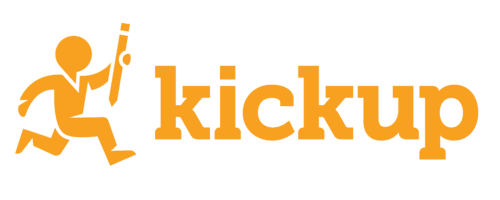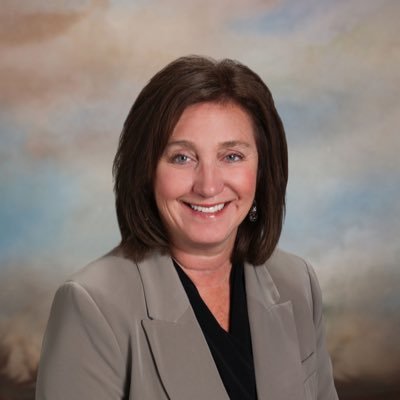Table of Contents
Michele Eller, Director of Secondary Instruction and CTE at Eufaula City Schools, Alabama, discusses changes and offerings in the Alabama school district. Eller shares her evaluation process and elaborates on teachers’ enthusiasm to further their growth through Professional Development.
Interview
Host: Michele, I want to speak with you because of your background in education and your role as director. You mentioned on social media your commitment to professional development, and that’s one of the things that I’d like to cover today. Tell us about your experience in understanding how we can improve offerings for districts and schools? How can we better evaluate our needs and how can we associate those needs in the market?
We want to remind everybody that this interview with Michele Eller is brought to you by KickUp, Engaged Teachers in Continuous Improvement. Kick up partners with K12 organizations to coordinate professional learning efforts, improve decision making and ensure that great ideas translate into demonstrable outcomes in the classroom.
So, Michele, you are in social media, and you like to communicate things that are valuable in the space for those you’re working with and representing. We were just talking off air about PD and what it means to you. Walk me through, if you will, some of the transitional pieces and initiatives in your current district.
How do you evaluate what needs to be done when you are transitioning from one system to the next? I think it’s a great opportunity for us to learn, especially for those of us that have been within one district for an extended period. You offer a fresh set of eyes to say, “This is what this school or this district is currently going through and here’s how we might improve that culture through offerings and support we can give to our teachers.” How do you look at that?
Michele Eller: Well, I did multiple things. First, I went in classrooms. I went on walkthroughs. I went to facuIlty meetings. I introduced myself to teachers, told them my role, and let them know that I was not there with a checklist. I was merely there as a helper, and I saw myself as a resource as a curriculum director. That’s how I like to connect with the teachers. I entered in a way that would be non-threatening, and I simply did instructional rounds. I went into classrooms, sat down, chatted with teachers, and I chatted with kids. I could see firsthand what the instruction was like at both our middle school and our high school. Those are the two schools I primarily oversee, as secondary curriculum director. Simply looking firsthand was the first thing I did.
The second thing I did was gather data. Data can tell us a lot. And for the most part, data does a lot. I pulled Aspire scores; I pulled ACT scores, AP scores, and pretty much anything I could get my hands on. Some of the grade levels had done an assessment screening through a global scholar, Scantron; I pulled that data as well. Then I just looked at all of it and the remediation data too because you can have a high grad rate but that doesn’t necessarily mean that you’re students are prepared for college.
Since we no longer have the grad exam, which wasn’t that great in the first place, maybe I shouldn’t say that (laugh), but we don’t have a distinct measurement except, “You came to your classes, you passed them, here’s a diploma.” In Alabama, we’re working on revamping things in a positive way. There were pretty good grad rates, 86% or 89% but when I looked at the remediation rate for these kids that were going to colleges in Alabama, about 40% of them had to take remedial Math or English.
It’s clear they weren’t prepared for college. Yes, they graduated, and we are excited about that, but did we prepare them for the next step?
What the Data Says
Host: What you’re saying is it that you almost have to peel back the layers like an onion to say, “Okay. We have the first set of data that might say X and make us feel good in what we’re doing, but then we have to dive into that and understand it at a different level.”
Michele Eller: Right.
Host: Michele, how do you weave that into looking at data tied to the ways we’re supporting teachers. We see coaching models, mentoring models, and professional development that is created to provide support, so how can we connect the dots. If we’re going to make changes from a supportive standpoint, how do we do it at the teacher level so that they are continuing to build on their expertise and learn from the data that they’re getting on student outcomes? If they feel supported, we see potentially better results in the classroom. How do you look at that component when evaluating what PD is necessary when remediating the student component?
Michele Eller: Right. The third thing I did (laugh)
Host: Yes. (laugh)
Michele Eller: I created a survey, an instructional audit survey. I did it using Google and sent it out to all the teachers.
On this survey, I had multiple questions, such as, how many years have you been teaching? What subject level? And please check all the things that you’ve received training on, whether it’s AP courses, whether it’s AMSTI, which is our Alabama Math and Technology and Science Initiative, which is phenomenal. Some teachers went through the training for the Science portion; some went through the training for the Math portion. I asked, as well, if they have gone through the “Laying the Foundation,” which was plus college ready. If they had gone through other training, they could list that as well. Then I asked them, what areas they felt secure in, their strengths in the classroom and areas they felt were weak and needed some professional development.
A PD wish list was created, and they could check different things they needed. We sent that across County; teachers did it within a faculty meeting with support on how to use Google, and log into the survey. The data we got was phenomenal. It showed us clearly that we had a large number of fairly new teachers, that had almost no training in different areas.
We had a significant number that had requested training, and that leads to conversations. An example, “Well, when we did the instructional support survey, we noticed that most of you wanted professional development with technology. Here’s a great conference that we have found in Montgomery. We’ll provide transportation if you want to go. Send me an e-mail.” So, that was the third thing. We now know where our district is headed, what we would like to do, and what we want “you” to do. But unless they have ownership of it, then they’re only going do it out of compliance.
Open Conversations
Host: What was the response, Michele, when you turned that data back around? Do you see a sense of empowerment where the teachers feel they are not alone? There are others in the same predicament, and now we can do something about it and have an open conversation.
Michele Eller: They were excited. We did a huge professional development training packet this summer. We got our school board to agree to a couple of things: 1.) Allow flex days, two flex days through the academic year. If teachers attended professional development and they brought back documentation, they would not have to work two days during the school year; they could be “play days.” 2.) System-wide initiatives. For our new Science standards we sent all the Science teachers to AMSTI, we requested all of our honors classes teachers to go. Then there was our Rigors Curriculum Design, where we asked all our grade level chairs and department heads to go. Once two flex days were used up, we offered two stipend days, and our school board was in agreement.
So, once we presented the data, once we presented the instructional audit, and once we presented some articles, we were able to prove our argument that, “this is important, and our teachers need it.” We also provided transportation, we have our special needs bus, has air, it’s very hot in Alabama, so that’s important. (laugh)
Host: I have heard that. (laugh)
Michele Eller: Yes. We clearly told them, “Look; we know we’re asking you to go to this, we’re going to provide transportation. Make sure you’re at the Central Office by 7 a.m., and you get the air conditioned bus.”(laugh)
We bussed our teachers, and we purposely found AMSTI, the Science training, in a progressive school system about an hour from us. It’s a good system for our teachers. It’s two-fold, one, we were able to do the training on the New Science Standards, and two, now they have formed professional networks with those teachers, and they are “fired up” excited to visit those schools. They were sending me pictures at the training, saying, “Thank you so much for sending us here. We love this.” We also sent some of our admins because, we can do great things for teachers, but if our administrators don’t know what those great things are and don’t know how to look for them in the classroom, then you’re going to hinder the support.
Host: Absolutely.
Michele Eller: Administrators took turns partaking in some of the professional development as well.
Professional Development
Host: It sounds like that was a very smart, well-rounded approach because it’s not just about one population professionally in a school environment and community.
I wanted to ask you from what you’ve learned through this process, starting with the article you shared on social media, entitled, “No Panacea Key Obstacles to Effective Teacher Professional Development.” People think that there is a panacea, they hope that there’s a one size fits all and we can check a box and say, “We’ve met that.” If you’re talking colleague to colleague or peer to peer from another district, from an advice perspective, how do you prop up and support teacher agency in this conversation, so that you create the “buy in” and see some actionable results?
Host: We say that no two students are alike. We tell that to our teachers. We say “You need to differentiate your instruction in the classroom. You need to meet the needs of the students in the classroom.” But, we don’t do that same thing in an administrative role.
We’ve got to figure out where our teacher’s strengths and weaknesses are and then build on that. Like I said before, we also have to empower them in part of that process. In additional to our system-wide initiatives, we found professional development all within our area. Normally, it was a 100-mile radius, which they could choose to go to if they wanted to find professional development for every single subject area, Health teachers, PE teachers, Fine Arts teachers, everybody felt important.
A lot of times in systems we’ll say, “Well, you know, our accountability is reading and math, reading and math.” And so, we’re only going to empower those teachers that teach reading and math. We forget that all other subject areas are applications of reading and math. We’ve got to empower all of the teachers.
Once we started rolling it out a lot of the teachers in their survey mentioned, “technology.” They wanted to know more about technology. They wanted to learn more about technology.
In April, a good friend of mine, Keith George who works for the state department, was hosting an Ed Camp in Montgomery, and it was free.
I pushed it out, system-wide, with the little tag that said, “Most of you indicated on your instructional audit that you wanted some PD in technology. Here’s a great workshop, Keith George is a good friend of mine. I know it’s going to be phenomenal. If you want to go, Central Office will pay for your transportation. Send me a message and let me know.”
We ended up having about a dozen teachers that took advantage of it. Well, those teachers came back fired up. They had stuff all over social media, they all won prices, they all learned tons of things; they networked with teachers in Montgomery, teachers in Pike Road, they wanted to make some school visits and see their schools. And so once the other teachers got wind of it, they were all upset that they didn’t get to go. (laugh)
Host: I’m sure.(laugh)
 Michele Eller: They approached me and said, “Why can’t we do an Ed Camp here in the fall? Can we do one?” I said, “Sure. I had no clue what it is, but sure.”
Michele Eller: They approached me and said, “Why can’t we do an Ed Camp here in the fall? Can we do one?” I said, “Sure. I had no clue what it is, but sure.”
Host: We’ll figure it out. (laugh)
Michele Eller: (laugh) We’ll figure it out. So I called Keith, and now we are hosting the very first Ed camp in the Wiregrass Region, next Friday.
Host: Wow. Look at that.
Michele Eller: I’m still not completely sure about it. I’m pushing it out on social media. I think it’s a great thing whatever it is, but we’re doing it in the fall. So that’s the other thing, you’ve got to make them realize that their voice is important.
Host: Yes.
Michele Eller: Peers, just like with students, can often teach a whole lot better than us in leadership roles.
Host: Sure, yes.
Michele Eller: You’ve got to let your teachers push it out.
Host: You’ve got that built in “buy in” by doing it. I think it’s a wonderful example of a commitment to excellence and trying to find new ways to engage and understand data. It’s ever evolving, and we’re finding new ways to utilize it and smarter ways to look at it. Your experience and what you’re doing is great for everybody to listen to and see how, at a district level, you can incorporate different approaches. Continued success. We hope the Ed camp goes well.
Michele Eller: Yes.
Host: We’d love to hear about it.
Michele Eller: It will be on (laugh)
Host: (laugh) It will be on We will see that. We want to remind everybody to check out kickup.co, “Engage Teachers in Continuous Improvement with KickUp.” KickUp partners with K12 organizations to coordinate professional learning efforts, improve decision making and ensure that great ideas translate into outcomes in the classroom.
Subscribe to edCircuit to stay up to date on all of our shows, podcasts, news, and thought leadership articles.

